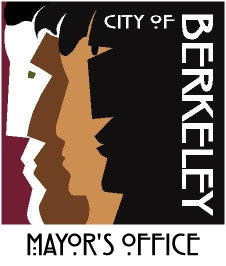Berkeley Council Adopts Housing Preference Policy as Redress for Redlining & BART Construction
July 24, 2023
BERKELEY COUNCIL ADOPTS HOUSING PREFERENCE POLICY AS REDRESS FOR REDLINING & BART CONSTRUCTION
The policy prioritizes affordable housing for current and former Berkeley residents and their displaced descendants
BERKELEY, CA - This month, the Berkeley City Council adopted a Housing Preference Policy that would prioritize displaced families and their descendants for placement in affordable housing.
“We must face and rectify the wrongs of our City’s past and do right by those who were displaced”, said Berkeley Mayor Jesse Arreguin. “This policy will prioritize housing for those who have faced injustices, and restore the diversity of our community.”
The Housing Preference Policy would prioritize people in the following categories:
Descendant of someone displaced by the construction of BART in Berkeley.
Displaced due to foreclosure since 2005.
Displaced due to a no-fault or non-payment eviction within the past seven years.
Households with at least one child aged 17 or under.
Homeless who are not eligible for Permanent Supportive Housing or at risk of homelessness with a current/former address in Berkeley.
Has lived in a redlined area in Berkeley or a descendent of one.
While redlining was effectively eliminated in 1966 with the State Supreme Court overturning Proposition 14–which allowed property owners to discriminate against who they sell or rent their property to based on race–the impacts are still seen today. In addition to blocking the ability to create generational wealth through homeownership, many of these redlined communities have been gentrified which creates further displacement.
Similarly, the use of eminent domain during the construction of BART in the 1960s also caused displacement and destruction of the social and economic fabric of close knit communities, especially among South Berkeley’s Black community. The BART category will be ranked the highest, acknowledging the harm that was caused by its construction. All other categories are ranked equally.
The policy was created after years of discussions with residents and community organizations, including Healthy Black Families (HBF) and East Bay Community Law Center (EBCLC) to address gentrification and displacement in Berkeley. For example, in the 1970 US Census, African Americans made up 23.5% of the City’s population. 50 years later the population plummeted to just 8%.
“The legacy of exploitation of Black people and the extraction of wealth from Black communities has a long legacy in our nation. The mass displacement of Black citizens from the South and West Berkeley communities is representative of these realities locally”, said Wilhelmenia Wilson, Executive Director of HBF. “Central to the mission of Healthy Black Families, Inc. is advancing social equity and justice, with a focus on Black individuals and families. This housing preference policy is at the heart of that work and a solid threshold step towards repairing harm done to the Black community in Berkeley. There is much work left to do, and we are encouraged by what we have collaboratively accomplished thus far.”
“Our country and more particularly our city carry deep legacies of redlining, eminent domain seizures, and predatory lending that have inflicted harm upon the Black community here; this includes many African Americans being displaced due to the inability to afford skyrocketing rents”, said Jasmine Sozi, EBCLC Project Manager for Community Economic Justice Practice. “The preference policy plays a crucial role in advancing racial equity in Berkeley, as it directly confronts the historical injustices experienced by the Black community and communities of color.”
The policy will apply to a to-be-determined percentage of affordable housing and does not allow for race to be considered, in accordance with State and Fair Housing laws.
